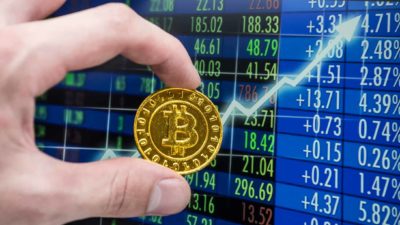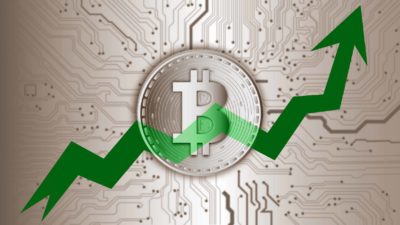Bitcoin (CRYPTO: BTC) as an inflation hedge?
It's not the first time the idea has come up for debate.
But with Australia's inflation surprising to the upside and Bitcoin's price rising, the question has taken on new urgency.
In figures released earlier today, Australia's Consumer Price Index (CPI) for the June quarter increased 0.8%. That brings the annual inflation figure up to 3.8%.
Now, many analysts believe the sharp price rises are transitory, largely driven by one-off issues caused by the COVID pandemic. But just how long inflation continues to trend higher, and just how high it may go, remains to be seen.
Bitcoin, in the meantime, is up 8.0% over the past 24 hours and up 30.3% over the past 7 days, according to data from CoinMarketCap.
The digital token is currently worth US$40,034 (AU$54,100).
Bitcoin as an inflation hedge?
Now I'm not saying that Australia's inflation figures are directly driving the Bitcoin price higher today.
But following unprecedented amounts of fiscal and monetary support to stem off a COVID economic depression, the inflation bugbear is lurking in major economies across the globe.
The spectre of a new inflationary era is of increasing concern to Australian investors. And many are now looking to properly position their portfolios in the face of rising costs.
The issue appears to be of particular concern among Bitcoin and other crypto supporters. That's according to a survey commissioned by crypto platform Gemini, founded by Cameron and Tyler Winklevoss.
In fact, 79% of the 1,010 crypto enthusiasts on the independent panel said they think inflation will become a real problem Down Under over the next 5 years. 85% of the panel also said they believe it's a good idea to invest in appreciating assets during inflationary periods.
Asked which of 7 types of investments they believed were safest should inflation persist, 41% chose property. 19% chose cryptocurrencies and another 19% chose shares, locking cryptos and shares in a tie for second place. Only 9% opted for commodities "such as gold, silver and energy".
Commenting on the results, Asia-Pacific managing director of Gemini Jeremy Ng said:
As an asset in limited supply, fast growing cryptocurrencies such as Bitcoin can be a strong inflation hedge against devaluing fiat currencies. For this reason, we find many investors hold crypto such as Bitcoin, rather than using them as a means of payment…
It is telling that 10% more investors prefer crypto to gold, silver and other commodities. I regard Bitcoin as gold 2.0 as both assets share many similar characteristics. The reason it is 2.0 is because Bitcoin trumps gold in many aspects such as scarcity, storage cost, portability and divisibility.
What about crypto's notorious volatility?
The Bitcoin price, as touched on up top, is well-known for its wild price swings. In 2021 alone it traded as low as US$29,111 in January and as high as US$64,829 in April.
While that remains a concern, Ng points to its rising acceptance by institutional investors as likely to smooth the volatility. "Institutional investors entering the market will help to dampen Bitcoin's price swings," he said.
And for investors who've been able to stomach the historic price swings, Jeremy notes that, "Bitcoin … has had the highest average return across all asset classes in the last decade. At an average annualised return rate of over 200%, Bitcoin's average return is over 10 times that of Nasdaq-100 index which was the second ranked asset class."
While that's true for the 10 years gone by, there's no guarantees about how the token will perform in the years ahead.
As with all crypto and share investments, don't invest more than you can afford to lose.







